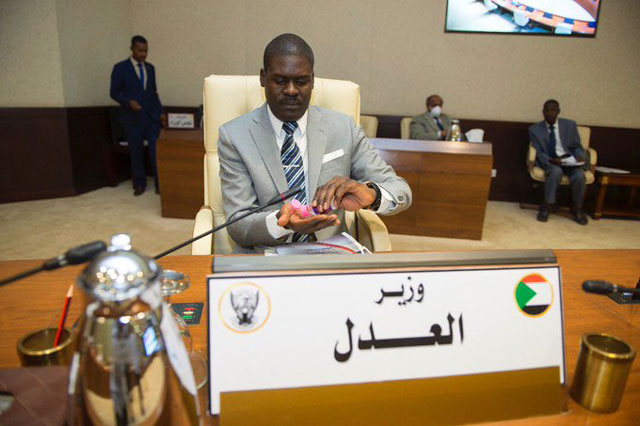
Khartoum, Sudan | THE INDEPENDENT & XINHUA | Sudan’s Justice Minister Nasredeen Abdulbari has announced a series of far-reaching judicial reforms that include abolition of death penalty for apostasy, ban on Female Genital Mutilation (FGM) and permission for Christians to drink alcohol.
The justice minister confirmed that the new Sudan government has repealed apostasy punishment in the penal code which was famously used against Meriam Yahya Ibrahim in 2014.
He said the death penalty for those under 18 has also been abrogated while the government is inching closer to sealing a deal on terrorism related claims in the US,
Sudan has officially promulgated several amendments to several laws ensuring women freedoms and criminalizing female genital mutilation (FGM), said the ministry of justice on Friday.
Last April, Sudan criminalized FGM but the law had to be promulgated and published in the Official Gazette, this was done on Thursday 9 July, said the ministry of Justice in a statement released on Friday evening.
Sudanese women took to the street massively during the four-month protests that brought down the former regime of Omer al-Bashir which during the past 30 years confiscated women’s freedom and rights placing them under the guardianship of men.
Eliminating all forms of discrimination against women was part of their demands and it was agreed as one of the goals that the transitional government should implement.
“The Miscellaneous Amendments Act (..) of 2020, deals with some reforms provided in the Constitutional Document related to amending laws related to human rights and freedoms, particularly the freedom of women and children,” said the ministry of justice on Friday.
The promulgated law abolishes separate articles in some laws that “degrade the dignity and of women, such as criminalizing female circumcision and recognizing the right of women to travel with their children abroad and other rights,” further stressed the statement.
The consent of the husband or a male guardian was needed before to allow women to travel abroad or to take her children under the previous laws.
Activists pointed out to the contradiction between several dispositions in the Muslim Personal Law Act of 1991 in Sudan and 2005 constitution which provides that “All persons are equal before the law and are entitled without discrimination, as to race, colour, sex, language, religious creed, political opinion, or ethnic origin, to the equal protection of the law.”
They further said that women with such “legal” discriminations risk facing violence, including “marital rape, and be prevented from leaving the home, working, choosing where to live, and be treated less equally by other family members”.
The Ministry of Justice described the law “a basic building block for extending justice in Sudan and for promoting the Sudanese justice system to meet international judicial standards.”
 The Independent Uganda: You get the Truth we Pay the Price
The Independent Uganda: You get the Truth we Pay the Price





